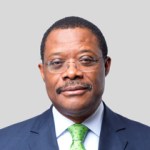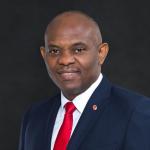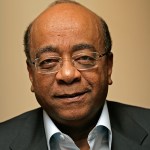The Kaye Whiteman Summer Lecture is dedicated to the memory of the late Martin Kaye Whiteman, respected journalist and for many years a Director and Adviser to the BCA who died in 2014.
Educated at Oxford University where he developed his interest in Africa and the decolonisation process, Kaye was one of the most distinguished writers of his generation on African politics, economics, history and culture, Kaye met most of the key African leaders from the independence period and developed a remarkable understanding of all matters African, in particular Nigeria where ‘Lagos Boy’ lived and worked from 1964 until settling back in the UK in 2005. Courteous and soft-spoken, Kaye made a huge impression on those who had the privilege to know and work with him.
At the Information Directorate of the European Commission in Brussels in the late 70s and early 80s and between 1999/2000 as Director of Information at the Commonwealth Secretariat, he dealt with a wide range of development issues. He co-edited with Dr Adekeye Adebajo of the Centre for Conflict Resolution in Cape Town a widely reviewed volume on The EU and Africa.
Kaye was a research associate at the Centre of African Studies at and a trustee and Vice-Chairman of the Africa Centre in London. As a researcher with Chatham House he was working on a history of Africa when he died. A series of essays for the Business Council for Africa’s monthly newsletter was published for the first time in one volume in 2014.
‘Africa has been cursed in many ways. For centuries it has had to bear the consequences of prejudice and ignorance and avarice, but it has been blessed in its friends. They may be infuriated by its faults, frustrated by its failures, but they have been constant in their certainty that the continent’s time will come.
There are few who kept to this faith as steadfastly as Kaye Whiteman.’
Michael Holman, Former Africa Editor of the Financial Times

Bob Diamond, 2013
Bob Diamond as a former Group Chief Executive of Barclays plc, Bob’s banking career included spells at Morgan Stanley and CS First Boston. With entrepreneur Ashish Thakkar he founded Atlas Mara, focussing on banking in the African continent. BCA Honorary President Arnold Ekpe, stepped down as Chairman of Atlas Mara in 2016.
Bob is passionate about the prospects for Africa and in 2011 was included in the “50 Most Influential” ranking of Bloomberg Markets Magazine. He is a trustee of the Mayor’s Fund for London.

Arnold Ekpe, 2014
Arnold Ekpe served as Group CEO and Executive Director of Ecobank from 2005-2012 and 1996 to 2001 transforming Ecobank from a small five country operation into a truly pan-African bank, He joined United Bank for Africa as Chief Executive Officer from 2002 until 2004. He has over 30 years of African and international banking experience, having also worked for Citibank and First Chicago. He was Vice President and Head of Structured Trade and Corporate Finance for Sub-Sahara Africa for Citibank. He holds degrees in Mechanical Engineering and Business Administration from Manchester University and Manchester Business School respectively.

Rt Hon Lord Chidgey, 2015
A liberal democrat politician, David was appointed a Life Peer in 2005. Qualified as both a mechanical and a civil engineer he worked in West Africa as a consulting engineer. and entered parliamentary politics in Hampshire in 1992.
He is a member of the Governing Council of the European Partnership for Democracy [AWEPA] and chairs the oversight committee for the Commonwealth Policy Studies Unit, a think tank devoted to policy concerns throughout the Commonwealth.

Tony Elemulu, 2016
An economist by training and a visionary entrepreneur and philanthropist, Tony Elemelu was made a Commander of the Order of Nigeria (CON) and Member of the Order of the Federal Republic (MFR). New African magazine listed him as one of the 100 most influential people in Africa. In 2012, Forbes Magazine recognised him as one of ‘Africa’s most Powerful People’. He believes that Africa itself must lead the way in its growth and development and emphasises the empowerment of the private sector, away from concentration on investment outwards from Europe.

Mo Ibrahim, 2017
Mo Ibrahim is a Sudanese-British billionaire businessman best known for creating the Mo Ibrahim Foundation with the aim of defining, assessing and enhancing governance and leadership in Africa. It publishes the Ibrahim Index of African Governance, ranking the performance of all 54 African countries. He inaugurated the Mo Ibrahim Prize for Achievement in African Leadership, with the first recipient former president Joaquim Chissano of Mozambique.
Mo’s career, following degrees in electronics and electrical engineering and a PhD in mobile communications, took him to British Telecom/Cellnet and then in 1998 to Celltell a mobile phone operator in Africa which he sold in 2004.
Mo Ibrahim has pledged to give at least half of his wealth to charity by joining The Giving Pledge. He is credited with “transforming a continent” and said to be the “most powerful black man in Britain”.

